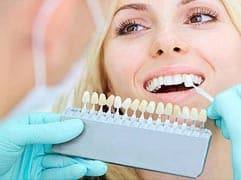Can You Fix Tooth Decay?
A dental cavity occurs when there is a hole in your tooth. A cavity is also the result of tooth decay which occurs over a period of time. With early and prompt intervention, cavities can be stopped or even reversed.
This article will explain how the tooth decay process begins in addition to how it can be stopped or even reversed in some cases.
Our mouths are filled with bacteria. Hundreds of different types of bacteria live on our teeth, gums, tongue and inside our mouths. Some bacteria are helpful while other types can be harmful, including those which play a role in the development of tooth decay.
Tooth decay occurs as the result of an infection with certain types of bacteria which use sugars found in food to make acids. These acids can form a cavity in the tooth over time.
A battle takes place inside our mouths each day. On one side is the dental plaque which is a sticky, colorless film of bacteria. In addition, there are foods and drinks which contain high levels of sugar and starch such as milk, sweets, candy, and soda. Whenever we consume something that contains sugar or starch, the bacteria uses this in order to produce harmful and destructive acids. Over time, these acids eat away the hard outer surface or enamel on the tooth.
The other side includes the minerals found in our saliva, such as calcium and phosphate, in addition to fluoride from toothpaste, water and other possible sources. These minerals give the enamel the ability to repair itself by replacing the minerals which are lost from the acidic decay.
Our teeth go through a continuous process of naturally losing and regaining minerals throughout the day.
When a tooth is frequently exposed to acid, for example when you consume foods or drinks which contain high levels of sugar and starch, the repetitive cycles of acid attacks can cause the enamel to lose minerals. This can result in a white spot which may appear where the minerals have been lost and is one of the early sign of tooth decay.
At this point, tooth decay can be stopped or even reversed. Enamel is able to repair itself through the use of minerals from saliva, and fluoride from toothpaste or other materials. If the tooth decay process continues, however, additional minerals are lost. Over time, the enamel becomes weak and is destroyed which ultimately forms a cavity. A cavity is permanent damage which must be repaired by a dentist with a filling.
Fluoride is a mineral which can help prevent tooth decay from progressing into a cavity. In some cases, it can reverse, or stop early tooth decay. Fluoride protects the teeth through the following methods:
- Preventing mineral loss in tooth enamel
- Replacing lost minerals
- Reducing the ability for bacteria to produce acid
Common ways to get fluoride include:
- Drink fluoridated water from a community water supply
- About 74% of Americans who receive a community water supply system receive fluoridated water
- Brush your teeth with a fluoride toothpaste
When the dentist suggests that children receive additional fluoride to help protect their teeth, they may suggest the following:
- Application of a fluoride gel or varnish to the surface of the tooth
- A prescription for fluoride tablets
- Use of a fluoride mouth rinse
More on Tooth Decay : Tooth Decay Symptoms
Actual Patient Reviews
We have so many terrific reviews it's impossible for us to list them all! Thanks for supporting Iowa Dental Group with your gratitude.
Dental Office Location
Iowa Dental Group prides ourselves in offering the highest quality dentistry at a fair and reasonable fee.
Des Moines, Ia 50311
(515) 277-6358
iowadentalgroup@hotmail.com
https://www.iowadentalgroup.com
Iowa Dental Group Contact Form
Our Des Moines' Dentists Bob Margeas DDS & Nicholas Economos are eager to help provide any answers you may have. Contact us today regarding optimal oral health.
Dentist Office Hours
Our Dentists look forward to answering any dentistry related questions or dental concerns you may have regarding your overall oral health and smile.
Office Hours
| Monday: | 7:30am - 5:00pm |
| Tuesday: | 7:30am - 5:00pm |
| Wednesday: | 7:30am - 5:00pm |
| Thursday: | 7:30am - 5:00pm |
| Friday: | Closed |
| Saturday: | Closed |
| Sunday: | Closed |
















